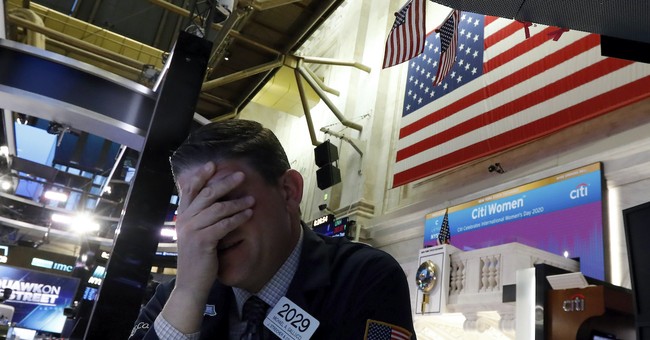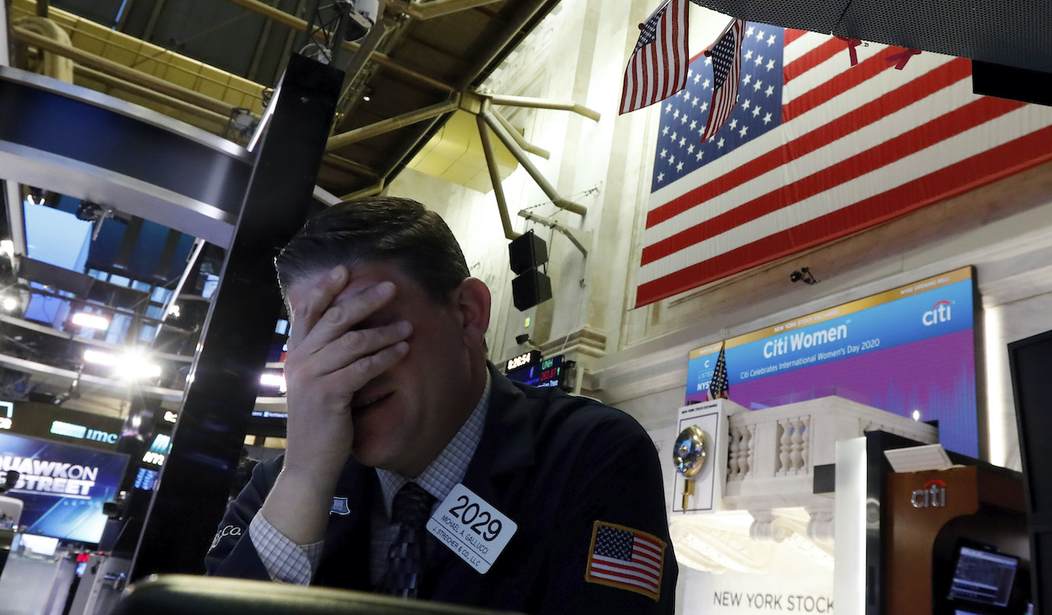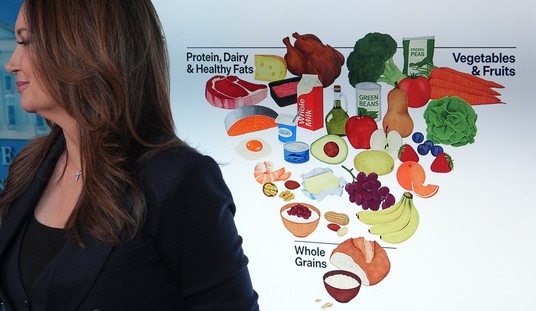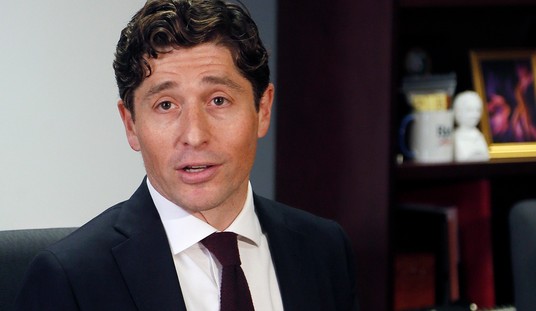
Trader Michael Gallucci prepares for the day’s activity on the floor of the New York Stock Exchange, Monday, March 9, 2020. Trading in Wall Street futures has been halted after they fell by more than the daily limit of 5%. (AP Photo/Richard Drew)
Earlier I wrote on the method Sweden took to combat the Coronavirus, which is to say they practiced social distancing and then proceeded to NOT lock the country down and continued allowing Swedes the freedom to move about and live their lives as a free country should.
As I was writing that I would randomly glance at Twitter or peruse subreddits and catch story after story of Americans being arrested in parks while playing with their children, church services being broken up, and more. Anybody who reads my pieces regularly knows that I’m already pretty fed up with the lockdown and believe more and more, as evidence comes out, that the lockdown should end. Today if possible.
Nothing makes me believe that more than watching Sweden and their herd immunity approach, which was first lambasted by everyone and their dog when the plan was first released. When I first heard about the plan, I had to wonder if it really was the wrong way to go about doing things. Yes, more people would likely contract the virus but given the fatality rate dropping like a rock every day, it would appear that herd immunity could be achieved quickly and the country could get back on track, suffering nothing more serious than a figurative hiccup.
And now here Sweden is. Their economy suffered but not nearly as much as anyone else’s. In fact, they’re doing splendidly.
This approach did have drawbacks. The elderly were the most likely to suffer from the virus, and true enough, they absolutely did. According to CNBC, Dr. Anders Tegnell, chief epidemiologist at Sweden’s Public Health Agency admitted that while the rates of infection are declining, Sweden’s elderly were hardest hit:
While the number of new cases appears to be declining, achieving herd immunity has proved controversial. Tacitly allowing the virus to spread (albeit having put measures in place to slow its spread) puts the elderly and people with existing health conditions at a greater risk of becoming seriously ill and, potentially, dying.
Tegnell conceded that the situation in Sweden’s care homes, which have seen the majority of deaths from the coronavirus, is worrying.
“The death toll is very closely related to elderly care homes. More than half of the people that have died have lived in elderly care homes.” Tegnell said, adding that he and the Public Health Agency are “still very concerned about the elderly.”
“It’s the group we said we needed to protect,” he said, adding that the agency was working with homes to see what improvements could be made to lower risk factors.
In the event of the outbreak of a disease, the elderly are always the most at risk. I’m sure with enough time, a plan can be put in place for future events like this that would help protect the elderly from infection.
That said, it would appear that the death rate still wasn’t the catastrophic atrocity that many people predicted for the country.
So that brings us to us.
Millions are out of work. Small businesses that supported families and helped communities are shut down. Our government is spending trillions to keep the American people afloat…and it would appear that we didn’t have to do much of that in the first place.
As more and more information about the virus comes out, such as the fact that it’s far more infectious and far less deadly than we thought, I can’t help but wonder if we allowed fear to rule us. Our reaction seems more and more like an overreaction and not just with hindsight included.
It appears that we allowed sensationalism to rule the day.
This makes me wonder that if we run into a crisis in the future, how will we handle it? We’ve demonstrated here that we’re not going to take the sensible approach as Sweden did. We’re not going to be measured. We’re going to go to extremes.
We may pull out of this nosedive and hopefully do so sooner than later. We may return to bull markets and strong economies the nation over, but the next time we may not be so lucky. Next time, our overreaction may harm our economy so badly that our nation never loses the scar it gave itself.
We goofed, and we have to make sure that in the future we don’t resort to medieval practices like bleeding ourselves to dry rid ourselves of an illness.















